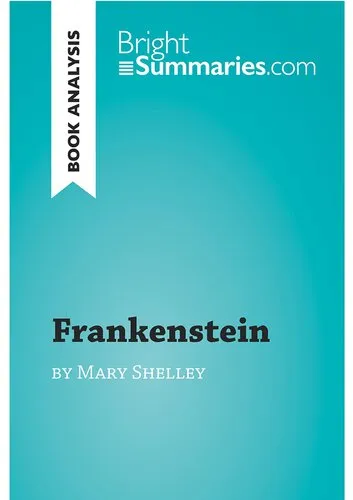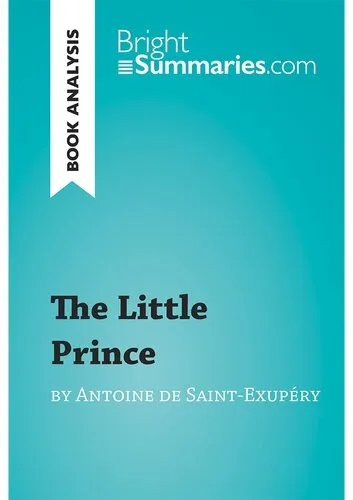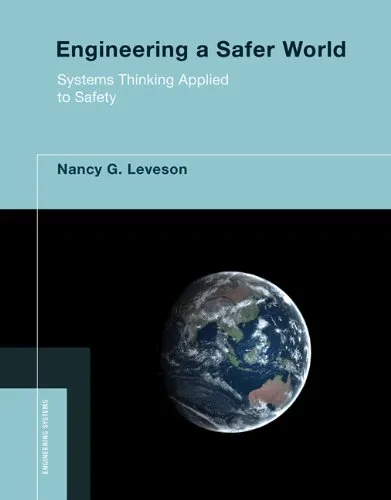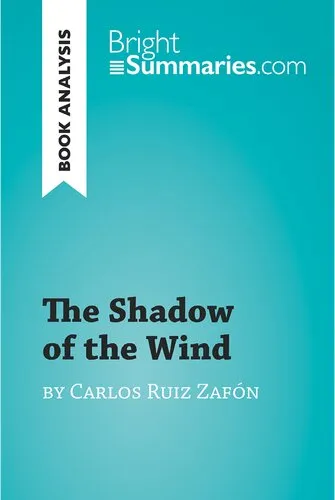Frankenstein by Mary Shelley (Book Analysis): Detailed Summary, Analysis and Reading Guide
4.0
بر اساس نظر کاربران

شما میتونید سوالاتتون در باره کتاب رو از هوش مصنوعیش بعد از ورود بپرسید
هر دانلود یا پرسش از هوش مصنوعی 2 امتیاز لازم دارد، برای بدست آوردن امتیاز رایگان، به صفحه ی راهنمای امتیازات سر بزنید و یک سری کار ارزشمند انجام بدینکتاب های مرتبط:
معرفی کتاب "Frankenstein" نوشته مری شلی
کتاب 'Frankenstein' اثر مری شلی، یکی از بحثبرانگیزترین و تاثیرگذارترین آثار ادبی در ژانر Gothic و Science Fiction است که از زمان انتشار در سال 1818 توجه بسیاری را به خود جلب کرده است. این رمان نه تنها به دلیل داستان شگفتانگیز و جذاب خود مشهور است، بلکه همچنین به خاطر موضوعات فلسفی و اخلاقی که مطرح میکند، به یک اثر کلاسیک تبدیل شده است.
خلاصه جامع کتاب
داستان 'Frankenstein' حول محور زندگی ویکتور فرانکنشتاین، دانشمند جوانی است که به دنبال راز جاودانگی و خلق زندگی از طریق روشهای علمی میباشد. او موفق به خلق موجودی میشود که بعدها به عنوان هیولای او شناخته میشود. اما این موجود که از سوی جامعه طرد و رد شده، به دلیل احساسات عمیق تنهایی و طردشدگی به اقدامات خشونتآمیز روی میآورد. رمان در قالب یک داستان چند لایهای ساختار یافته است که روایتهای مختلف از دید شخصیتهای متفاوت را به تصویر میکشد و هر کدام دیدگاه خاصی از زندگی و سرنوشت را به نمایش میگذارد.
نکات کلیدی
- موضوعات اخلاقی و فلسفی مربوط به علم و اخلاق پژوهشهای علمی.
- بررسی تاثیر پیشرفتهای علمی بر جامعه و انسانها.
- بنی بشر و خلقت، مسئولیتهای اجتماعی و انسانی.
- تقابل بین احساسات و عقلانیت.
جملات معروف از کتاب
«از همان لحظهای که موجود زنده شد، من خود را خالق شری که به آن زندگی بخشیده بودم، احساس کردم.»
«اگر نمیتوانی مرا دوست داشته باشی، از ترس مرا اطاعت کن.»
چرا این کتاب مهم است؟
کتاب 'Frankenstein' نه تنها به دلیل داستان پور از تضاد و هیجان خود محبوبیت دارد، بلکه بخاطر موضوعات عمیق و چالشبرانگیز آن پیرامون مسئولیتهای اخلاقی علم و اخلاق زیست شناختی بسیار مهم است. این اثر به ما یادآوری میکند که پیشرفتهای علمی بدون توجه به جنبههای انسانی و اخلاقی میتواند به نتایج فاجعهبار منجر شود. به همین دلیل است که 'Frankenstein' هنوز هم پس از دو قرن از زمان انتشارش همچنان در محافل آکادمیک و فرهنگی به عنوان اثری از اهمیت بالای بحثبرانگیز در حوزههای مختلف شناخته میشود و ارزش مطالعه و تفکر دارد.
Introduction
Mary Shelley's "Frankenstein" is a singular work of literature that has woven itself into the very fabric of our cultural understanding. Born from a challenge among friends to write ghost stories on a cold, tempestuous night in the summer of 1816, Shelley’s tale has endured and resonated throughout generations. In this book analysis, we will delve deep into the elements that make "Frankenstein" a cornerstone of Gothic literature, exploring its plot, themes, and enduring influence on both literature and society.
Detailed Summary of the Book
"Frankenstein" follows the ambitious and tragic story of Victor Frankenstein, a young scientist driven by a desire to conquer the secrets of life. Victor's journey begins with his early fascination with the natural sciences. This obsession propels him toward a groundbreaking, yet dangerous, experiment: creating life from death. In a fervent quest for knowledge and accomplishment, Victor succeeds in bestowing life upon a patchwork creature assembled from body parts obtained from corpses.
However, Victor's success quickly turns into a haunting reality as the creature, initially filled with innocence, becomes increasingly aware of the rejection and fear it incites in humans. This alienation sets off a catastrophic chain of events, ultimately leading to the destruction of everything Victor holds dear. The narrative poignantly explores themes of ambition, isolation, and the human condition, all portrayed through the vivid language and emotionally charged prose that characterizes Shelley's writing.
Key Takeaways
- The Duality of Creation and Responsibility: Shelley’s novel delves deep into the ethical and moral responsibilities tied to creation, especially scientific endeavors.
- Isolation as a Recurrent Theme: Both Victor and his creation suffer profound loneliness, showcasing the destructive impacts of alienation and the need for companionship.
- The Intersection of Science and Philosophy: "Frankenstein" invites readers to question the limits of scientific pursuit and the potential consequences on society and morality.
- Nature vs. Nurture Debate: The creature’s development from misunderstood being to vengeful entity sparks a profound inquiry into human behavior's nature and nurture aspects.
Famous Quotes from the Book
- "Beware; for I am fearless, and therefore powerful."
- "I ought to be thy Adam, but I am rather the fallen angel, whom thou drivest from joy for no misdeed."
- "Nothing is so painful to the human mind as a great and sudden change."
- "Life, although it may only be an accumulation of anguish, is dear to me, and I will defend it."
Why This Book Matters
Mary Shelley's "Frankenstein" remains a monumental work not only because of its narrative brilliance but also due to its deep philosophical questions and societal critiques. It compels the reader to ponder the potential consequences of unchecked scientific exploration, while simultaneously offering a cautionary tale about the ethical implications of playing God. The timelessness of its themes, such as the fear of the unknown, the pursuit of knowledge, and the tragedy of isolation, renders "Frankenstein" a relevant and thought-provoking read in the modern age.
The novel's reflection on human nature, identity, and the desire for acceptance continues to resonate with readers, allowing the story to transcend time and cultural shifts. As society grapples with technological advancements and their ethical dimensions, Shelley's classic provides a powerful lens through which to examine our current trajectory. "Frankenstein" is not merely a Gothic novel; it is a profound inquiry into what it means to be human, making it an essential part of literary discussions across generations.
دانلود رایگان مستقیم
شما میتونید سوالاتتون در باره کتاب رو از هوش مصنوعیش بعد از ورود بپرسید
دسترسی به کتابها از طریق پلتفرمهای قانونی و کتابخانههای عمومی نه تنها از حقوق نویسندگان و ناشران حمایت میکند، بلکه به پایداری فرهنگ کتابخوانی نیز کمک میرساند. پیش از دانلود، لحظهای به بررسی این گزینهها فکر کنید.
این کتاب رو در پلتفرم های دیگه ببینید
WorldCat به شما کمک میکنه تا کتاب ها رو در کتابخانه های سراسر دنیا پیدا کنید
امتیازها، نظرات تخصصی و صحبت ها درباره کتاب را در Goodreads ببینید
کتابهای کمیاب یا دست دوم را در AbeBooks پیدا کنید و بخرید
1595
بازدید4.0
امتیاز0
نظر98%
رضایتنظرات:
4.0
بر اساس 0 نظر کاربران
Questions & Answers
Ask questions about this book or help others by answering
No questions yet. Be the first to ask!
















